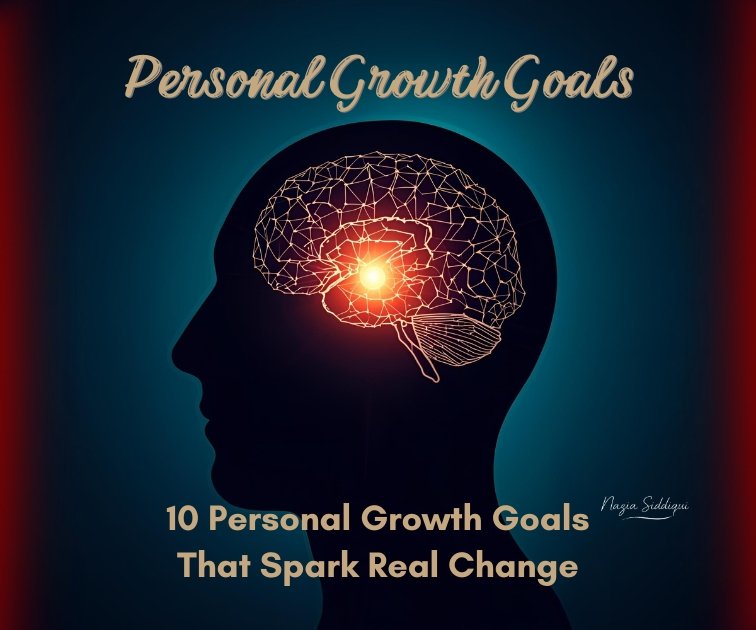Small shifts. Big impact. Begin your journey today.
5 Smart Steps To Personal Development For Leadership
What does it truly take to lead with confidence, clarity, and purpose? While some say leadership is innate, the truth is—it’s crafted. Through intentional personal development for leadership, anyone can evolve into a strong, inspiring, and impactful leader. Whether you’re leading a team, a project, or your own life, these five smart steps will help you grow from within and shine outward.

Personal Development For Leadership
Every impactful leader begins with a decision—to grow. Personal development for leadership is the journey of self-discovery, skill-building, and mindset mastery that turns potential into influence. Leadership growth is never a copy-paste formula—it’s a personal and evolving path shaped by your own strengths, struggles, and values.
Whether you’re navigating your first leadership role or refining your voice as an experienced professional, focusing on your development shapes how you lead, inspire, and grow others.
From self-awareness to executive presence, let’s explore how developing yourself from the inside out sets the stage for authentic, empowered leadership.
Step 1: Embrace Self-Awareness For Personal Development For Leadership
Leadership always starts from within. You can’t inspire others until you’ve taken the time to deeply understand who you are and what drives your decisions.
Ask Yourself
- What are my strengths?
- Where do I tend to struggle?
- How do I react under stress?
Self-awareness is a superpower. It lays the groundwork for effective self development in leadership. Leaders who reflect regularly and honestly can course-correct, connect better with others, and make decisions aligned with their values.
Real-Life Example
Sarah, a project manager, started journaling her weekly challenges and breakthroughs. Over time, she discovered patterns in her leadership style and fine-tuned how she communicated with her team. Her confidence soared, and so did her team’s results.
Quick Self-Awareness Boosters
- Keep a leadership journal
- Request 360-degree feedback
- Use tools like the Johari Window or DISC profile
Self-reflection is not a one-time task—it’s a lifelong practice that strengthens your leadership and self development.
Step 2: Strengthen Executive Presence For Leadership Growth
You’ve seen it—the kind of leader who walks into a room and everyone notices. That’s developing an executive presence. Leadership presence isn’t about turning up the volume—it’s about quiet confidence, being true to yourself, and showing up with purpose.
Key Elements Of Executive Presence
- Poised body language
- Clear, compelling communication
- Listening more than speaking
- Making others feel heard and respected
Human Insight
When you carry yourself with self-assurance and speak with clarity, people feel safe following your lead. Executive presence shows that you belong at the table—and know how to lead it.
Tip
Watch videos of influential speakers. Notice their tone, timing, and posture. Practice in front of a mirror. Over time, your presence will evolve naturally.
Step 3: Master Communication & Empathy In Personal Development For Leadership
Great leaders are not just good talkers—they’re master listeners. Leadership and self development go hand in hand with emotional intelligence.
Emotional connection is the glue of any effective team. Take empathy out of the equation, and leadership becomes distant and unrelatable—it’s empathy that makes people feel seen and heard
3 Simple Practices To Boost Empathetic Leadership
- Ask open-ended questions
- Acknowledge others’ feelings without judgment
- Summarize what you hear before offering advice

Example Personal Leadership Development Plan
| Goal | Action Step |
| Improve team morale | Hold weekly check-ins with each member |
| Develop better empathy | Attend a workshop on active listening |
These actions might seem small, but over time they transform how people perceive and respond to your leadership.
Step 4: Commit To Lifelong Learning For Leadership Personality Development
Leadership is not a destination; it’s a journey. The best leaders are constant learners. Whether you read books, take courses, or attend webinars—stay curious.
Leadership personality development isn’t just about learning business skills; it’s about emotional, social, and mental growth too.
Easy Ways To Keep Learning
- Follow leadership blogs (like Nazia Siddiqui!)
- Subscribe to industry newsletters
- Join mastermind groups or leadership forums
Example of a personal development for leadership plan might include reading one leadership book a month or enrolling in a public speaking course.
Why It Matters
The more you learn, the more adaptable, innovative, and resourceful you become. A leader who keeps evolving inspires others to do the same.
Step 5: Lead Authentically And Apply Personal Development For Leadership
The final step? Lead. Imperfectly, perhaps. But lead anyway.
Authentic leadership isn’t about having all the answers—it’s about showing up, staying true to your values, and learning as you go.
Common Obstacles
- Fear of failure
- Impostor syndrome
- Pressure to conform
But these challenges are also opportunities. Lean into them. Let your leadership be a reflection of who you are becoming.
Affirmations To Inspire Your Leadership
- “I grow into a better leader every day.”
- “I lead with courage and compassion.”
- “My presence makes a positive impact.”
Authenticity is your edge. That’s what draws people in—your ability to be real, connect emotionally, and lead with a story others want to be part of.

Frequently Asked Questions
1. What is personal development for leadership?
Personal development for leadership is the process of enhancing self-awareness, emotional intelligence, communication, and confidence to lead effectively.
2. How does self development in leadership help?
It helps you manage stress, understand team dynamics, and make mindful decisions, creating a more productive and motivated work environment.
3. Can you give a sample of a personal development for leadership plan?
A good personal development for leadership plan could include setting goals like becoming a better communicator, boosting team morale, and strengthening emotional intelligence—paired with actionable steps like regular feedback sessions or public speaking practice.
4. What is leadership personality development?
It’s the ongoing effort to build character traits and habits that support authentic, ethical, and empathetic leadership.
5. How can I start developing an executive presence?
Start by observing skilled leaders, practicing confident posture and tone, and getting feedback on your presence in meetings or presentations.
6. Why is lifelong learning important in leadership?
Because leadership is ever-evolving. Lifelong learning helps leaders stay adaptive, relevant, and innovative in changing environments.
7. Can I lead if I’m naturally introverted?
Absolutely! Many successful leaders are introverts who leverage deep thinking, empathy, and listening skills to guide teams effectively.
8. What role does Nazia Siddiqui play in leadership development?
At Nazia Siddiqui, we provide inspiring content, tools, and resources—from blogs to motivational apparel—that empower your growth journey.
Final Thoughts
Leadership doesn’t start with a title. It starts with a choice—a choice to invest in personal development for leadership, to face your fears, and to lead with purpose and heart.
Remember, no one was born knowing how to lead. They learned. They stumbled. They rose.
So can you.
Whether you’re working on self development in leadership, building executive presence, or crafting your example personal leadership development plan, take the first step today.
Explore the resources, dive into your inner work, and let Nazia Siddiqui support your journey with motivation, insight, and real tools that inspire transformation.
Your leadership story begins now. Lead it well.



